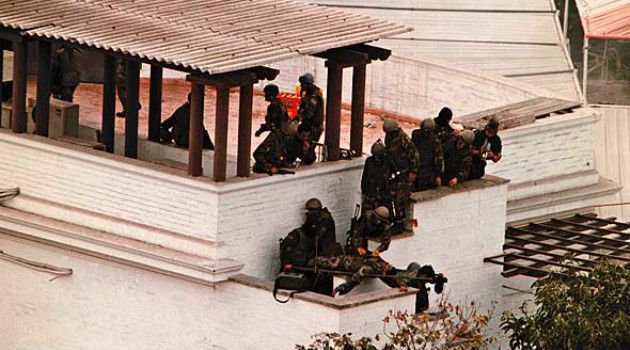






Washington, D.C. and Lima June 30, 2015.- The Inter-American Court of Human Rights (Inter-American Court) declared Peru responsible for the extrajudicial execution of a member of the Túpac Amaru Revolutionary Movement (MRTA), as a result of the military operation Chavín de Huántar in 1997, and determined the State did not conduct a thorough investigation of the incident.
The Inter-American Court published the verdict yesterday which established Peru’s international responsibility for the death of Eduardo Nicolás Cruz Sánchez alias “Tito”, which occurred once he had surrendered—making him a person protected under international law.
“The State had the right to use force in order to free the hostages in the context of armed conflict such as the one Peru endured,” pointed out Viviana Krsticevic, Executive Director of the Center for Justice and International Law (CEJIL), “However, as the Inter-American Court affirmed in its ruling, the state should respect the right to life and personal integrity of all individuals who do not participate or remain outside of combat.”
The Inter-American Court’s ruling coincides with decisions issued by Peru’s internal courts—first in October of 2012 and then in July of 201—that established the existence of an extrajudicial execution in the case of Eduardo Nicolás Cruz Sánchez and obligated the State to undertake an investigation in order to identify the perpetrators of this crime.
Although the international tribunal found that there was insufficient evidence to determine the State’s responsibility for the deaths of Herma Luz Meléndez Cueva and Víctor Salomón Peceros Pedraza, the Court determined Peru’s responsibility in violating the judicial guarantee through a lack of enforcing a thorough investigation and, at some point, using military jurisdiction to try this case.
“It is satisfactory for us that the Court has reiterated its jurisprudence with respect to the inadequacy of military jurisdiction to oversee the investigation into the circumstances surrounding an incident that could be constituted as a human rights violation” said Gloria Cano, Executive Director of APRODEH. “For many years, we have insisted on this focal point as one of the primary reason for which we submitted the case to the Inter-American System”.
In its decision, the Inter-American Court orders Peru to carry out a serious and effective investigation in order to identify, prosecute, and in this case, sanction those responsible for the extrajudicial execution of Eduardo Nicolás Cruz Sánchez. The Court also requested specialized health and psychological treatment for the victim’s brother. As it had been requested by the family of the victim, the Court did not order economic reparations.
CEJIL litigated this case in conjunction with the Asociación Pro Derechos Humanos (APRODEH) of Peru.
To read the Court’s decision, click here.
¡Ayúdanos a continuar este trabajo crítico y urgente con una donación!
DONA AHORA